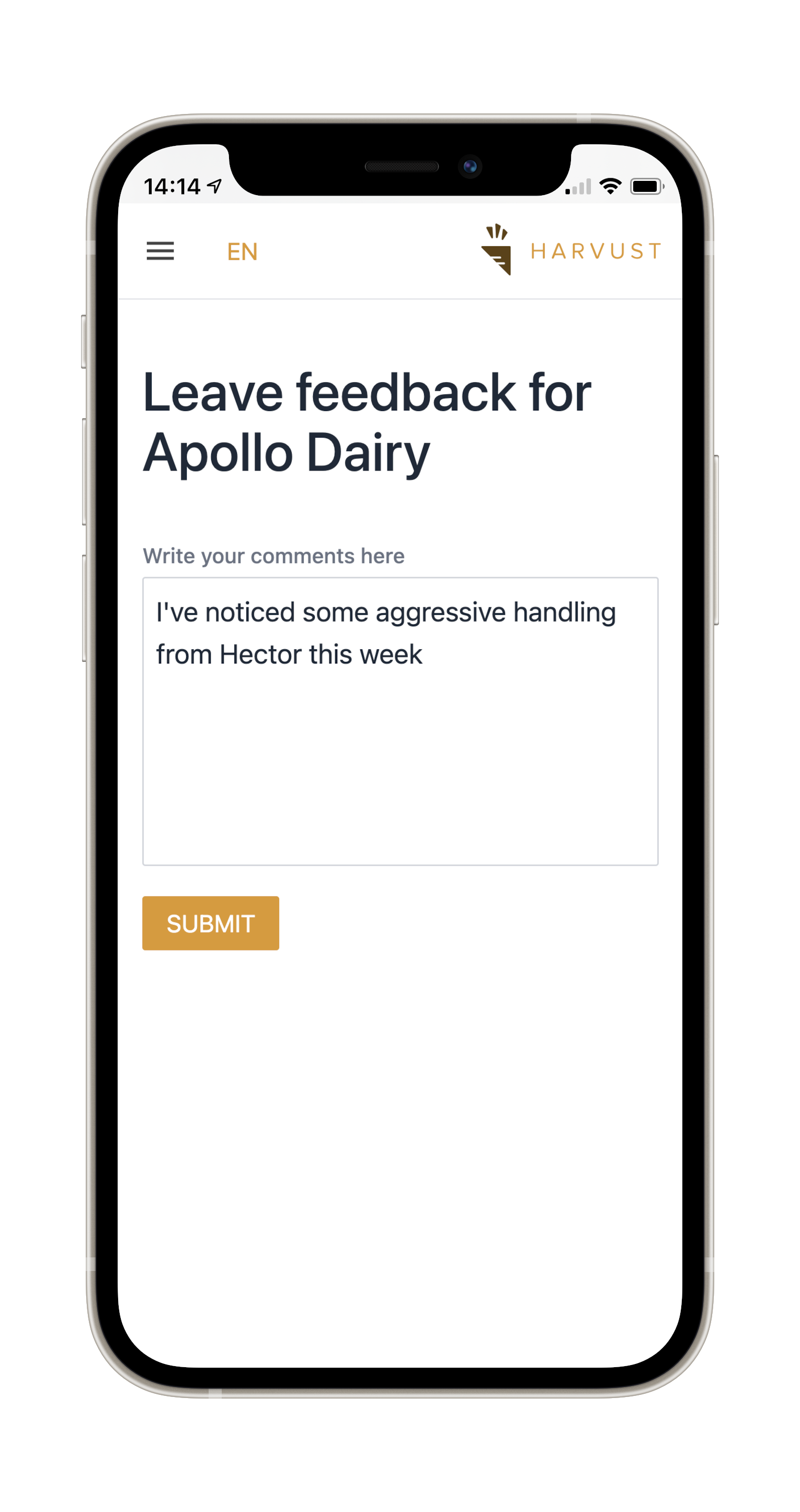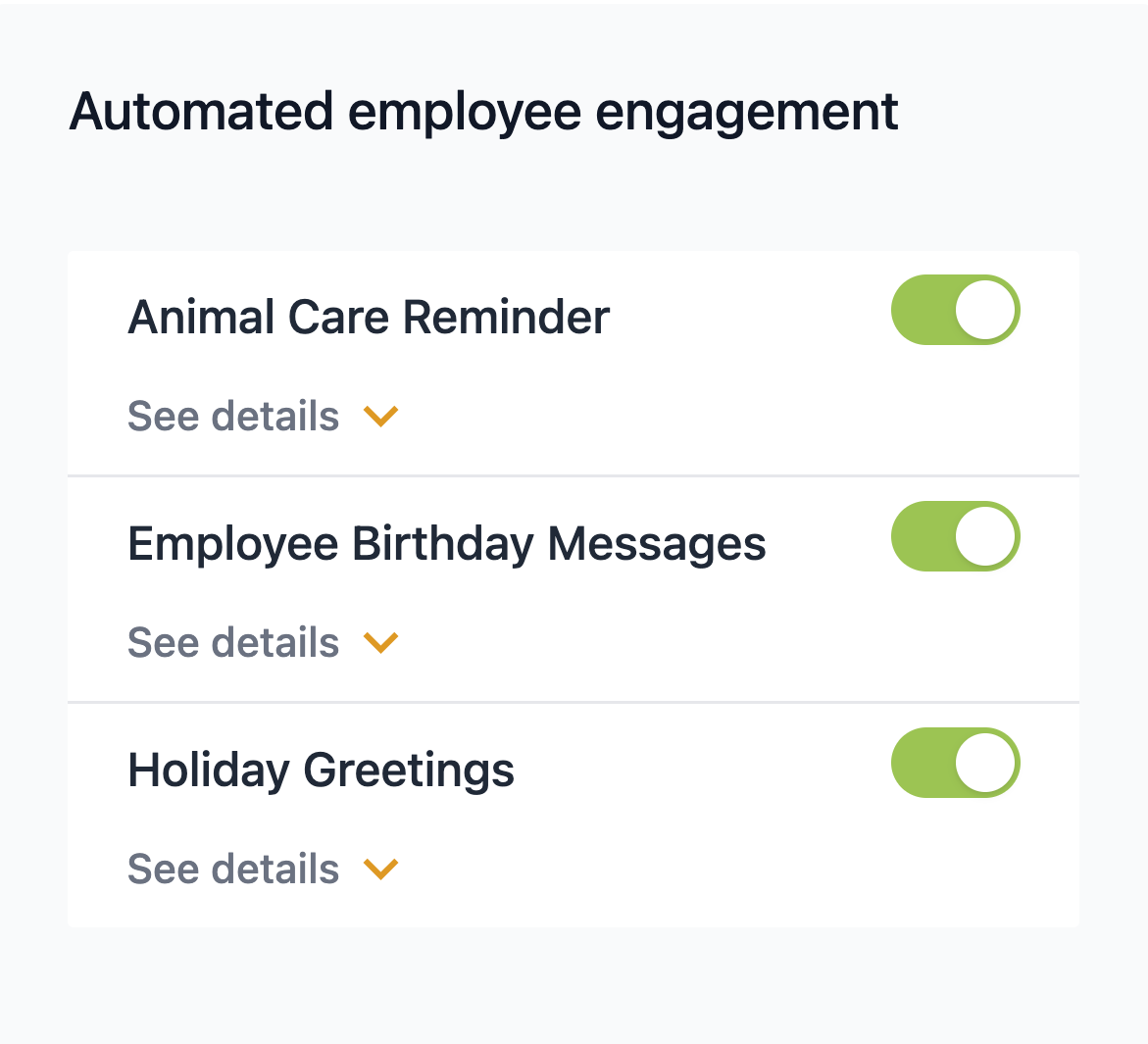We all know that maintaining open communication with employees isn't just good management—it's critical for safety, compliance, and even for buyer audits, such as those related to animal abuse. Yet, many farms still rely on outdated methods, such as suggestion boxes, hotline numbers, or supervisors, to collect employee feedback. The truth is, these passive tools rarely produce meaningful insights because employees almost always need a gentle nudge to speak up.
We've seen that a more proactive approach, directly from management, consistently outperforms passive methods. I wanted to review the elements that I have seen be effective and how you can implement them, whether manually or with automation tools like Harvust.
The problem with suggestion boxes and hotlines
While suggestion boxes and anonymous hotlines seem like straightforward solutions, they fall short because employees rarely take the initiative to use them. Barriers like uncertainty, forgetfulness, or simply feeling that their input won't matter are significant enough that valuable feedback often remains unsaid.
The power of proactive outreach
Proactively reaching out to your employees regularly demonstrates that you genuinely value their input and feedback. Instead of waiting passively, you actively encourage dialogue, making it easier and safer for employees to share concerns or suggestions.
A practical approach is to reach out directly to employees on a monthly basis explicitly inviting feedback on critical issues, such as animal welfare or workplace safety. An example we see with dairies is sending monthly texts thanking their crew for their commitment to animal care and encouraging them to speak up if they see any abuse. And in that text is a link to our easy-to-use anonymous reporting form. This proactive approach consistently generates far more feedback than passive methods. We also add this form to the end of every training on Harvust, and we now see that one in every eight farmworkers leaves some feedback.

The value of negative feedback
Now you might understandably worry: "Do I really want to encourage complaints or employees snitching on their coworkers?" However, proactive anonymous feedback often reveals important issues, such as safety hazards, chemical leaks, or behaviors that could lead to lawsuits, like harassment (all real things our customers have found out about because of Harvust). As long as your management team is the only one with access to this feedback, you'll be able to maintain discretion while also discovering these issues. And if you tackle them early, you'll be able to address them early and protect your farm's reputation and compliance.
Sentiment analysis: understanding employee morale
Not all feedback has to be critical to be valuable. When you implement these practices, you'll start getting a higher volume of employee feedback than before, and it may be overwhelming. This "good problem to have" happened with some of Harvust's customers, so we added a filter that analyzes all feedback and flags the critical ones for management to review. However, even non-critical feedback can still provide actionable insights. If you're manually collecting feedback, periodically review the overall tone of the responses. Are employees generally positive, neutral, or increasingly negative? While manual sentiment tracking can be challenging, platforms like Harvust simplify this process, automatically charting sentiment trends over time. When morale dips, you'll quickly recognize that intervention might be necessary, and the clues to what's causing it are probably in the feedback you collected.

Showing that you listen and care
Employee engagement isn't always about solving problems, it's also about nurturing a positive workplace culture. Actually acting on the feedback you receive is the best way to impact those specific employees that reported the problem to you. And it'll reverberate with other farmworkers who noticed the same issue, but didn't say anything. For the rest, simple gestures, such as recognizing birthdays and culturally relevant holidays, foster a sense of appreciation. Something as simple as a text from your boss can do the trick. These gestures, which someone can easily (but time-consumingly) manage manually, can be effortlessly scaled through automation tools and significantly boost employee morale.
Automation: achieving high ROI with minimal effort

Manual methods of proactive outreach, such as writing monthly feedback request messages, birthday reminders, and manually reviewing feedback, are doable but can quickly become time-consuming. And frankly, the ROI on your time isn't there. Automation, available through platforms like Harvust, streamlines these tasks, suddenly making them worthwhile. We've added one-click automated employee feedback collection, sentiment analysis, personalized AI-written birthday messages, and holiday greetings. By automating, you can achieve a higher ROI, freeing your time to address strategic concerns directly.
Final thoughts
Proactively engaging with your farm employees doesn't have to be complicated or labor-intensive. Whether you're managing this manually or leveraging automation, the key is consistently demonstrating that employee voices are valued and matter. In the competitive farm labor market, showing you care isn't just a feel-good exercise - it's an edge.





